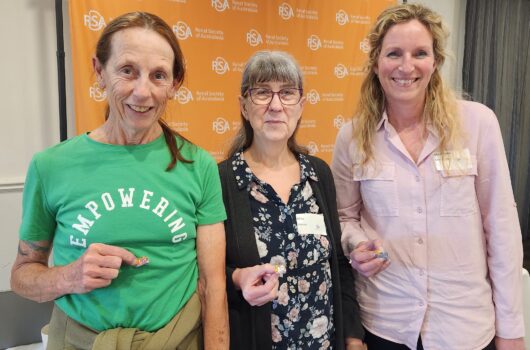Regional first for LRH with robotic assisted surgery

Robotic surgery is a far cry from having Star Wars characters R2-D2 and C-3PO donning gloves and prepping for an operation.
The reality is much less dramatic but is still a major step forward and an innovation likely to improve patient outcomes at Latrobe Regional Health (LRH) for people undergoing knee replacement surgery.
“It’s not quite Star Wars, but it is still using the principals of robotics to get us better results,” LRH Orthopaedic Surgeon, Dr Ben Brooker said.
“We use it for knee replacements, of which we do more than 300 each year at LRH, because that’s where the precision of the robotics gets us the best results.”
A knee replacement using one of the CORI robotic assisted surgery pieces begins with mapping the knee using a camera, a computer and probes to provide a full picture.
“Once we have that accurate picture, we can test the ligaments and when that is all fed into the computer, we have a much clearer plan of where to put in the components of the new knee,” Dr Booker said.
Before the use of computer assisted navigation, surgeons would undertake assessments ‘by eye’ then cut and remove bone, again, by eye.
“The robot will only cut where it is meant to. It does that part of the operation better than me, so it controls that. Most of the operation, such as the placement of the new knee, I can do better than it, so I still control that part of the procedure,” Dr Brooker said.
The result for any of those 300-plus patients receiving a new knee each year at LRH, is improved outcomes.
“While there are lots of factors determining how a patient recovers from a pretty major surgery like a knee replacement, we know that if we are cutting less into the bone, if we are placing the new knee in just the right spot so that the rest of the knee architecture can get used to it quickly, then patients will get better results.
“It doesn’t turn the pain from a 10 out of 10 to a zero, because knee replacements are a big procedure, but it will reduce some of that discomfort and get people back on their feet more quickly,” Dr Brooker said.
The introduction of the robotic assisted surgery equipment is one of several innovations and milestones at LRH over recent months.
“We’ve seen some significant events during 2023 whether it is the 1000th procedure in our cardiac catheterisation laboratory or being the first regional centre in the Victorian public system to use the CORI robotic assisted surgery,” LRH Chief Executive Don McRae said.
“While we can look back on those milestones with some satisfaction, 2024 promises to be even more exciting with the opening of new theatres for the surgical team as part of our major expansion.”






